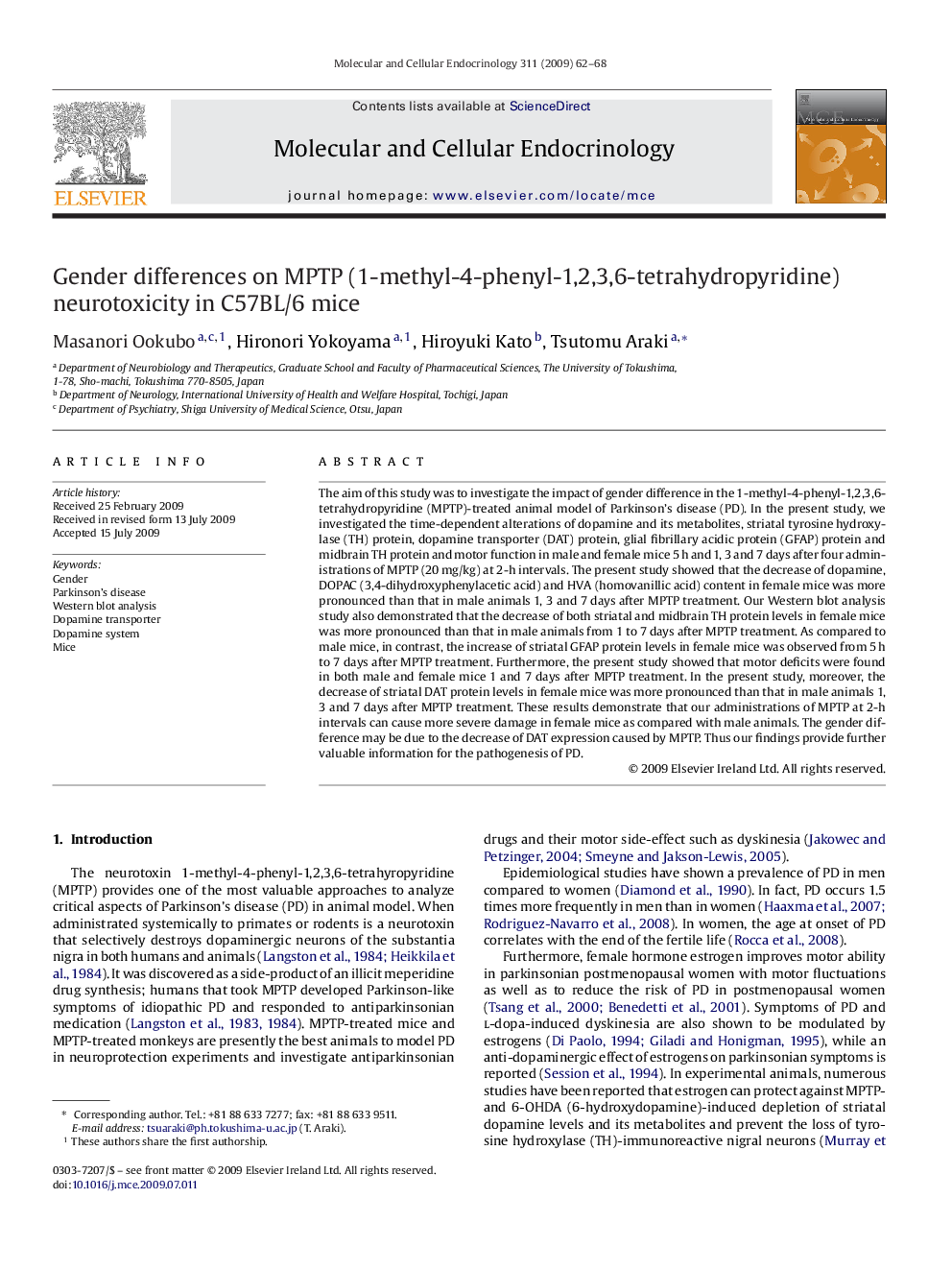| Article ID | Journal | Published Year | Pages | File Type |
|---|---|---|---|---|
| 2197162 | Molecular and Cellular Endocrinology | 2009 | 7 Pages |
The aim of this study was to investigate the impact of gender difference in the 1-methyl-4-phenyl-1,2,3,6-tetrahydropyridine (MPTP)-treated animal model of Parkinson's disease (PD). In the present study, we investigated the time-dependent alterations of dopamine and its metabolites, striatal tyrosine hydroxylase (TH) protein, dopamine transporter (DAT) protein, glial fibrillary acidic protein (GFAP) protein and midbrain TH protein and motor function in male and female mice 5 h and 1, 3 and 7 days after four administrations of MPTP (20 mg/kg) at 2-h intervals. The present study showed that the decrease of dopamine, DOPAC (3,4-dihydroxyphenylacetic acid) and HVA (homovanillic acid) content in female mice was more pronounced than that in male animals 1, 3 and 7 days after MPTP treatment. Our Western blot analysis study also demonstrated that the decrease of both striatal and midbrain TH protein levels in female mice was more pronounced than that in male animals from 1 to 7 days after MPTP treatment. As compared to male mice, in contrast, the increase of striatal GFAP protein levels in female mice was observed from 5 h to 7 days after MPTP treatment. Furthermore, the present study showed that motor deficits were found in both male and female mice 1 and 7 days after MPTP treatment. In the present study, moreover, the decrease of striatal DAT protein levels in female mice was more pronounced than that in male animals 1, 3 and 7 days after MPTP treatment. These results demonstrate that our administrations of MPTP at 2-h intervals can cause more severe damage in female mice as compared with male animals. The gender difference may be due to the decrease of DAT expression caused by MPTP. Thus our findings provide further valuable information for the pathogenesis of PD.
